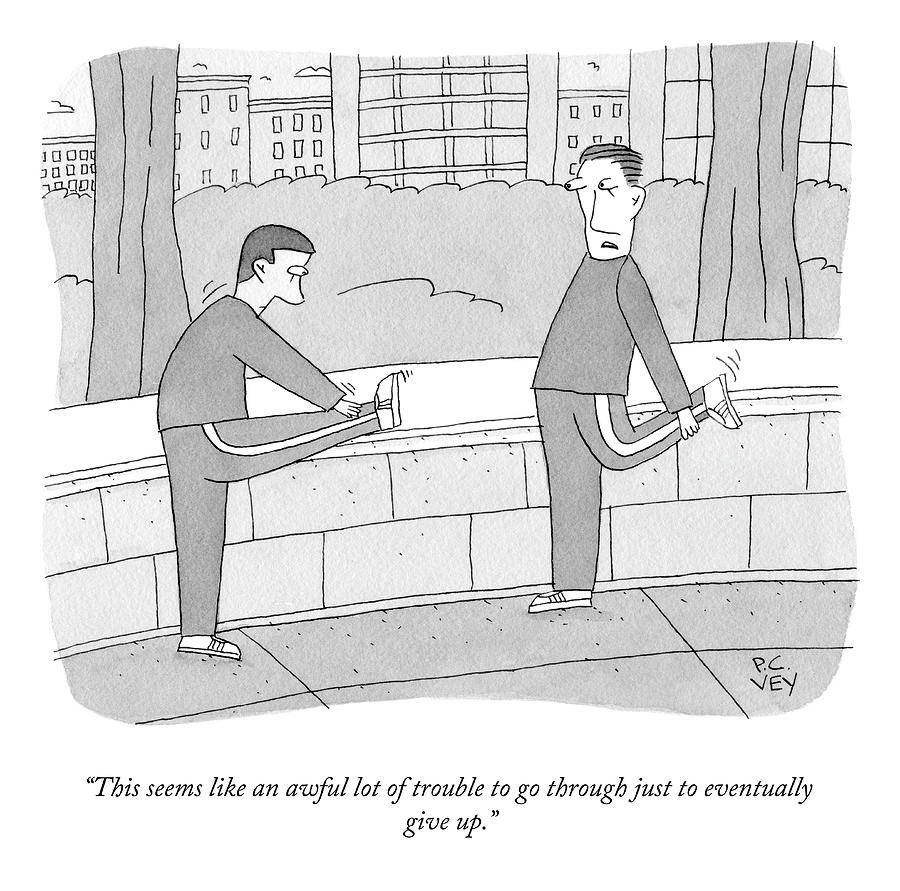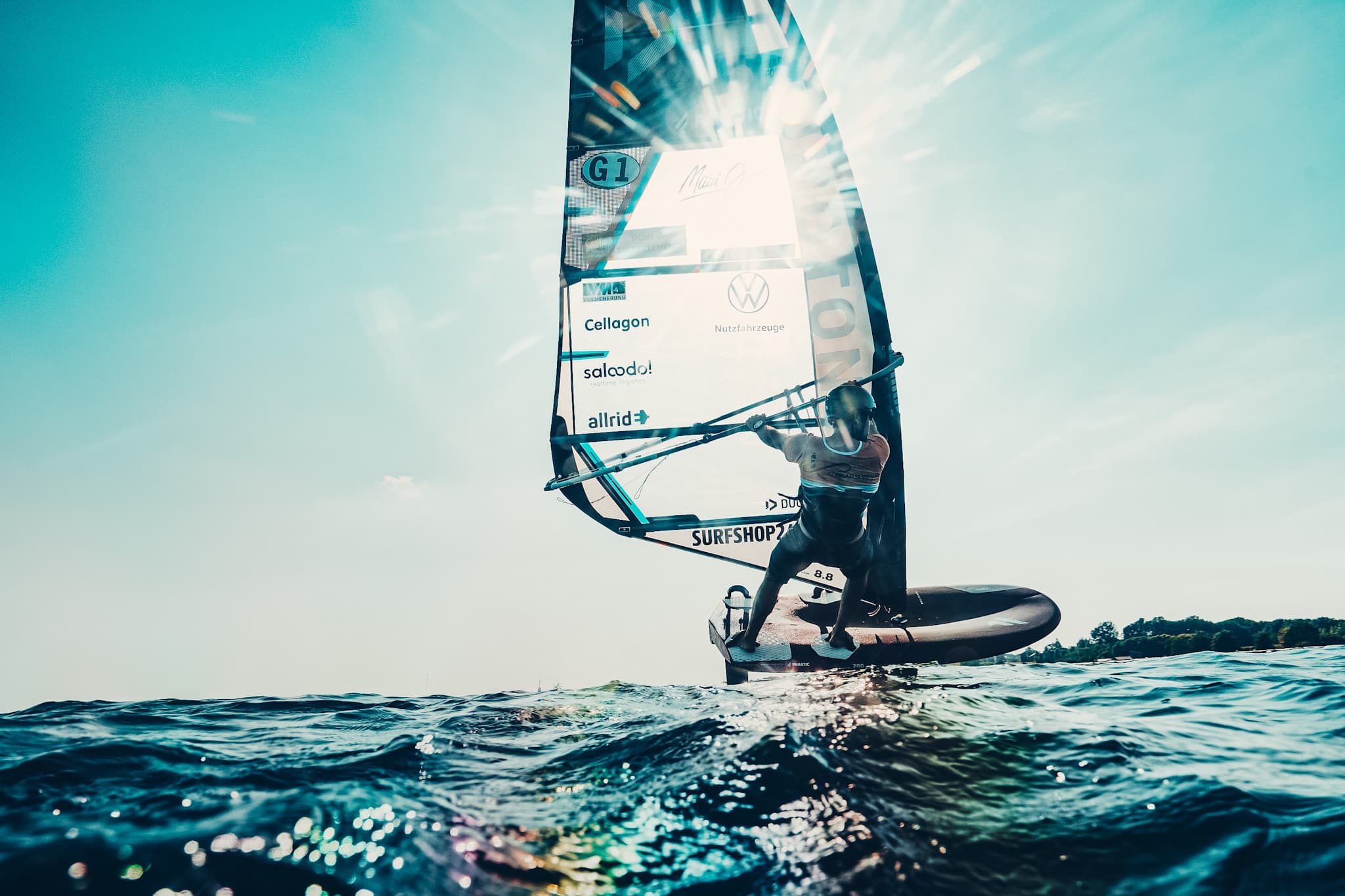Some say that our spiritual disciplines hold the same purpose as other ordinary tasks of daily life. Folding laundry, dusting shelves, or going for a run are the secular versions of reading your Bible and praying your prayers. Tasks whose ritual provides a refuge from the daily grind. The Bible is full of such analogies for the Christian life. We are told to strive to win a race, fight the good fight, and train ourselves for godliness. All of these can be inspiring images for living out a life worthy of the gospel, at least initially. But trying to exercise your spiritual muscles can often lead to a kind of spiritual burnout. Our routines, however holy they might be, tend to prioritize our own effort and willpower.
Though one’s choices can sometimes create desire, this reversal is difficult to sustain in the long run. Our behaviors usually regress to the mean of what we would otherwise want to do. Weekly bible studies fizzle out over time just as 5:00 am runs become sparse when the weather turns frigid. While discipline and rigor have some value, maintaining such a singular focus on discipline often turns Christianity into a grand moral enterprise. A life full of strategy and self-monitoring does not make for a life to the full. They also tend to leave out one key element: fun.

Whether it’s in the form of backgammon, scuba diving or listening to a symphony, fun has no clear purpose, but it is essential to what it means to be a human being. Perhaps the pious have a knack for self-imposed pain, but approaching Christianity solely as an exercise routine misses out on the heavenly banquet Jesus calls the kingdom of heaven, and a lavish party if there ever was one.
One of Jesus’ analogies for a life of faith, believe it or not, is bird watching. Anxious about your future? Concerned about that high blood pressure or what you’re going to wear today? “Do not worry about your life,” Jesus says, “consider the birds of the air!” Not only is birding a cost-effective way to offset the day’s troubles; it can lift even the most inwardly bent heart upward and outward. According to Jesus, you might be surprised to find that all it takes is the sight of a diving kestrel or darting cardinal to be lost in wonder, love and praise.
If birding isn’t your fancy, consider Robert Capon’s analogy for Christian theology: windsurfing. Like theology, windsurfing is something that makes life worth living. Bouncing on the waves, the water splashing and spraying as you zoom along, I can’t think of a better way to spend your time. That is, as long as it exists for the fun of it. Competitive windsurfing? No thanks. And you’d be hard-pressed to find anyone who turns windsurfing into their entire identity. No one ever talks about how taxing their windsurfing has become or how they really had to struggle to get out of bed and paddle out on the water. Windsurfing, like theology, is never a burden, but a joy. For Capon, Christian theology is almost exactly like windsurfing:
Everybody admires it, and plenty of people try it. But the number of people that can do it well is even smaller than the number who can do it without making fools of themselves. Trust Jesus, then. After that, theologize all you want. Just don’t lose your sense of humor if your theological surfboard deposits you unceremoniously in the drink.
In other words, the Christian life isn’t really a serious business. The last time I looked, none of the fruits of the spirit were a monthly training regime. But in light of Jesus Christ’s death and resurrection, the joys of life can actually be enjoyed. The game has already been won — the stakes of our daily lives are much lower than we think. If our righteousness has already been determined on the Cross, everything else in life is for the fun of it.

Be it cooking, skipping rocks or geocaching, whatever tickles your fancy should be relatively pointless. Not in the sense that it lacks meaning, but that its meaning is unclear. As George Santayana once said, “Music is essentially useless, as is life.” Any pastime that is able to slip through one’s pietistic fingers is less likely to be spiritually exploited. A hobby is fun precisely because it has no real utility, no point to it other than its enjoyment. A hobby is the embodiment of freedom for freedom’s sake.
One of the chief exemplars of this kind of spiritual practice is Simon Barnes, sports journalist and author of the latest Mockingbird Book Club installment, How to Be a Bad Birdwatcher. Rather than needing to impress you with his expertise in ornithology, Barnes maintains a childlike wonder for birds. For Barnes, wonder, much like grace, is not something from which one ever graduates. “Watching birds, however badly, is like looking at the sky at dusk on a frosty night: endless numbers of stars, endless mysteries, and the more you look, the more you see.” Whether you can name every star or merely connect the dots on Orion’s belt, the night sky is meant to inspire us with amazement. And the same goes for birds. “If we are not here for unfathomable mysteries,” Barnes asks, “then what is the point of life?” In other words, birds do not exist to be mastered, but to be marveled at.
Thus, the greatest things in life are pointless. They will not help you find yourself, but, rather, help you forget about yourself altogether. It is in losing yourself — in the wonder of creation, in riding an endless wave, in the learning and recognition of a bird’s call — where you become a new creation. No calendars, willpower or expertise needed.

COMMENTS
6 responses to “The Greatest Things in Life Are Pointless”
Leave a Reply













[…] taken seriously, which is almost everything? Well, I’m guessing — a more peaceful life? As Sam Bush writes at Mockingbird, while explaining how the greatest things in life, including Chris…: “The last time I looked, none of the fruits of the spirit were a monthly training regime. […]
Capon understood Wu Wei —-“The art of sailing, not rowing.”
Wonderful. I always think we attach too much meaning on the things that are meant to be meaningful (maybe), but surely fun. Thanks for your writing!
The article speaks of a goal of child-like wonder and enjoyment found only in being a child of the Father. I have found it takes significant internal honesty, work and time to effectively move toward experiencing that reality. It is becoming like a child again who knows the security of the presence of the mom and dad. Much unlearning is needed as we move down that path. Time spent learning to trust the guidance of Father through Christ is essential for me.
This approach to Christianity solves the fleshly tendancy of self-salvation through works / discipline, which pivots around the self. Appreciation and enjoying what God has provided focus us on thankfulness and this centres us on God.
[…] The Greatest Things in Life are Pointless, by Sam Bush […]